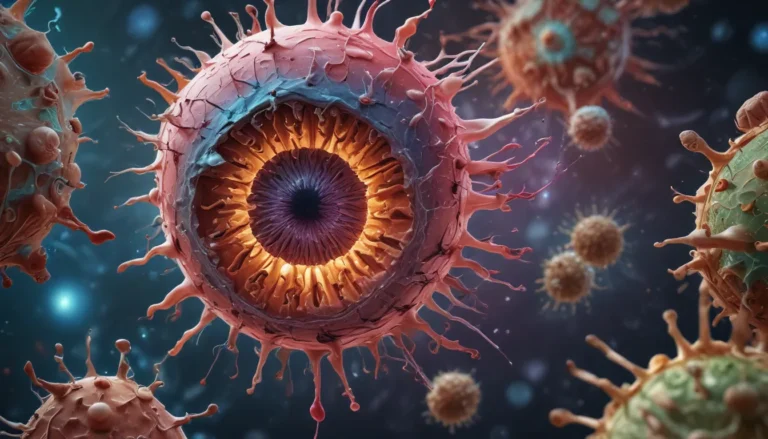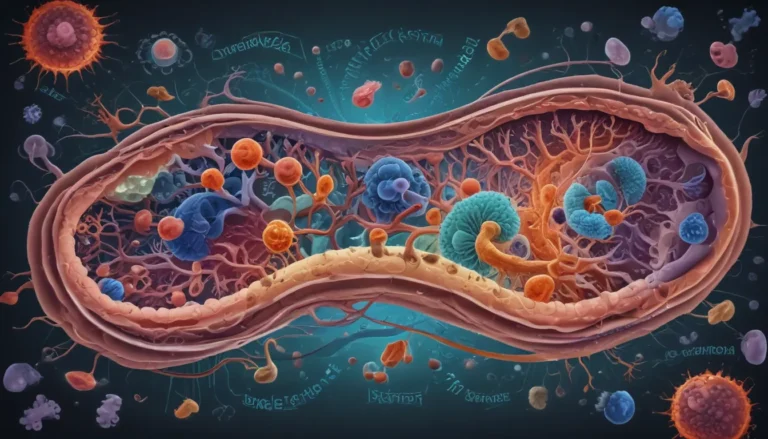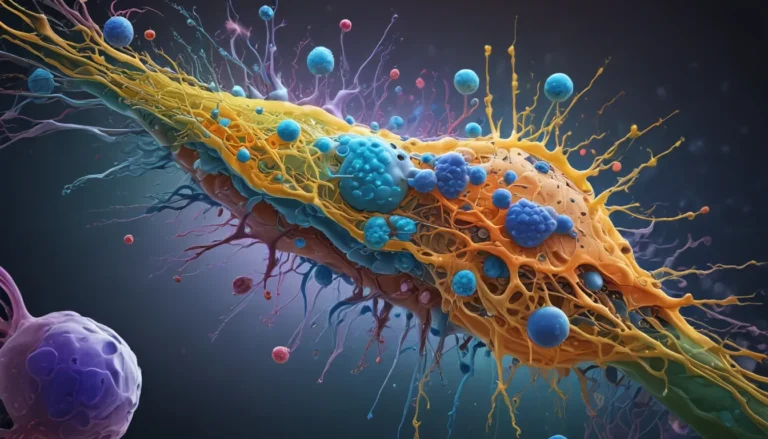A Note About Images: The images used in our articles are for illustration purposes only and may not exactly match the content. They are meant to engage readers, but the text should be relied upon for accurate information.
Plants, the green wonders of nature, exhibit a world of complexity hidden within their cells, orchestrating growth, responding to the environment, and thriving through the power of plant hormones. These tiny chemical messengers, also known as phytohormones, are the conductors of a plant orchestra, harmonizing growth, development, and adaptation to ensure plants flourish. In this enlightening journey, we will explore 10 mind-blowing facts about plant hormones that will leave you in awe of the intricate world of plant biology.
The Symphony of Plant Hormones
- Plant hormones regulate various growth processes: From controlling cell division and elongation to influencing flowering, fruiting, and seed development, plant hormones are the maestros of plant growth and development.
- The five major types of plant hormones: Auxins, gibberellins, cytokinins, abscisic acid, and ethylene each play a unique role in orchestrating plant physiology and responses to environmental stimuli.
- Plant hormones can act independently or synergistically: While they can regulate specific processes independently, plant hormones also interact synergistically to ensure plants adapt and flourish in changing conditions.
Diving Deeper into Plant Hormones
Auxins: The Builders of Growth
Auxins promote cell elongation and tropisms, guiding plants towards light sources and maintaining proper growth patterns through mechanisms like adventitious root formation and apical dominance.
Gibberellins: Stimulating Growth
Gibberellins regulate stem elongation and seed germination, ensuring plants reach their full potential height and activate growth processes in seeds to kickstart the germination process.
Cytokinins: The Conductors of Cell Division
Cytokinins control cell division and promote lateral bud growth, ensuring balanced growth distribution throughout the plant and proper tissue development.
Abscisic Acid: The Stress Manager
Abscisic acid plays a vital role in plant responses to environmental stresses, regulating processes like stomatal closure and seed dormancy to help plants conserve water and survive unfavorable conditions.
Ethylene: The Ripener and Scavenger
Ethylene is involved in fruit ripening, senescence, and leaf abscission, ensuring optimal fruit development, seed dispersal, and response to environmental cues.
Harnessing the Power of Plant Hormones
- Plant hormones can be artificially manipulated: Scientists have unlocked the potential of manipulating plant hormones to enhance crop yield, improve stress tolerance, and promote root development, paving the way for innovative applications in agriculture and horticulture.
- Understanding plant hormones leads to innovative applications: Unraveling the secrets of plant hormones opens doors to developing new plant growth regulators, managing plant diseases efficiently, and enhancing crop productivity and sustainability for a greener future.
Embracing a Sustainable Future with Plant Hormones
In conclusion, plant hormones are the unsung heroes of plant growth, with their diverse functions shaping the very essence of plants. Understanding the nuances of these chemical messengers not only provides insights into plant biology but also offers practical applications in agriculture and plant biotechnology. As we delve deeper into the world of plant hormones, we uncover endless possibilities for sustainable agriculture and a greener future.
FAQs: Exploring Plant Hormones Further
Q: How do plant hormones work?
A: Plant hormones work by binding to specific receptors in target cells, triggering cellular responses such as changes in gene expression, cell division, and differentiation.
Q: What are the major types of plant hormones?
A: The major types of plant hormones include auxins, gibberellins, cytokinins, abscisic acid, and ethylene, each with distinct functions in plant growth and development.
Q: Can plant hormones be used in agriculture?
A: Yes, plant hormones have significant applications in agriculture, from controlling growth to enhancing stress tolerance and promoting root development.
Q: How are plant hormones involved in plant responses to environmental cues?
A: Plant hormones play a vital role in coordinating plant responses to environmental cues like light, temperature, and stress, regulating processes such as flowering, seed germination, and stomatal closure.
Q: Are plant hormones only found in plants?
A: Yes, plant hormones are exclusive to plants and play essential roles in their growth and development, with potential analogs or similarities in other living organisms.
Unraveling the Mysteries of Nature
The world of plant hormones holds a treasure trove of knowledge waiting to be explored. Dive deeper into the realm of growth regulators and biochemical wonders with our article on plant growth hormones. As you unravel the intricate mechanisms that govern plant development, be prepared to be captivated by the wonders of nature, where science and beauty converge in harmony.
The Promise of Authentic Content
At the core of our mission lies a commitment to delivering engaging, authentic content that enriches your understanding of the world around you. Each fact shared on our platform is a contribution from real users like you, ensuring a diverse range of insights and knowledge. Our dedicated team of editors rigorously reviews each submission to maintain the highest standards of accuracy and credibility. Trust in our dedication to quality and authenticity as you embark on a journey of discovery with us.






